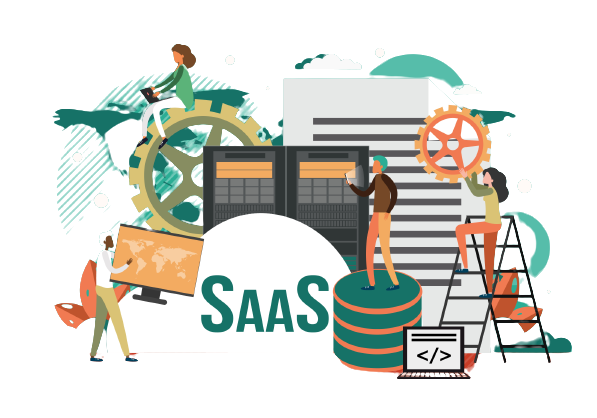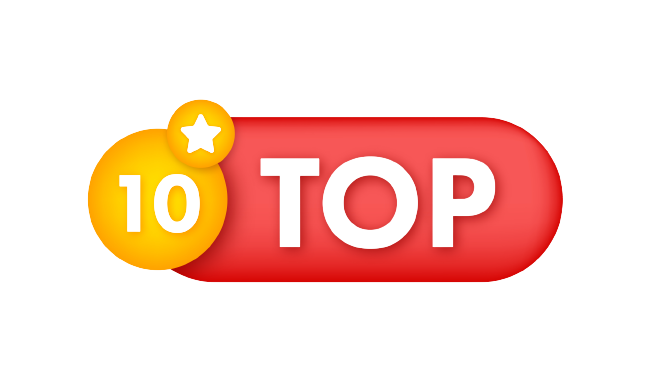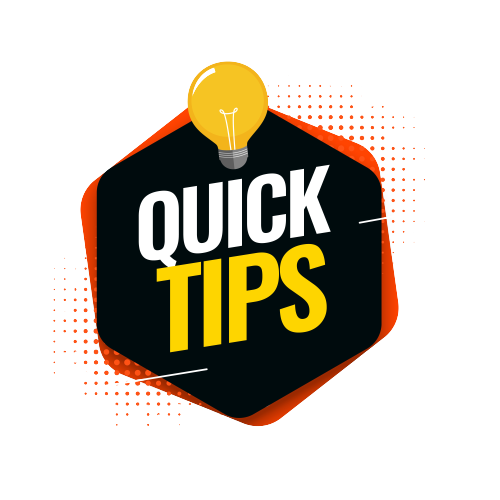
Many businesses depend on Keap for operating and streamlining their business operations. Keap is a popular option for SaaS businesses, but it can be expensive and complex to use. We could list several reasons why they should opt for Keap alternatives.
As SaaS businesses strive for seamless interactions, streamlined operations, and exponential growth. These businesses are unique in that they need to manage a recurring revenue stream and a customer base that is constantly growing. This can be challenging, especially for small businesses that don’t have the resources of a large enterprise. With this growth comes the need for powerful CRM and marketing automation software. Here are some top reasons why SaaS businesses need a CRM and marketing automation platform:
- Manage their customer base and track customer interactions
- Automate their sales and marketing processes
- Segment their audience and send personalized marketing messages
- Track their marketing ROI
- Improve their customer service
Why Consider a Keap Alternative?

There are a few reasons why a SaaS business might want to consider a Keap alternative:
- Scalability: Keap’s features may not scale seamlessly with the rapid growth of a SaaS business. Alternative CRM solutions often offer more robust scalability options to accommodate increasing user numbers and data volumes.
- Specialized Functionality: SaaS businesses often have unique needs, such as complex subscription management or advanced analytics. Keap alternatives may provide more specialized functionality tailored to the SaaS model.
- Integration Capabilities: Depending on the range of tools and platforms your SaaS business relies on, Keap’s integration options might be limited. Alternative CRMs often offer broader integration possibilities, ensuring a cohesive tech stack.
- Cost-Effectiveness: SaaS businesses, particularly startups, may find that alternative CRM options offer more cost-effective pricing structures that align with their budget constraints.
- Advanced Automation: Keap is known for automation, but alternative CRM systems may offer more advanced and customizable automation features, which are crucial for personalized customer interactions and marketing campaigns.
- Compliance and Security: In industries with strict data security and compliance requirements, alternative CRMs may provide better support for meeting regulatory standards and protecting customer data.
- Customer Support: Depending on your business’s size and needs, the level of customer support provided by Keap may not be sufficient. Alternative CRMs might offer better customer support and training options.
- Innovative Features: Newer CRM alternatives often come with cutting-edge features and technology that can give your SaaS business a competitive edge in terms of customer engagement and analytics.
- User-Friendly Interface: Some SaaS businesses may find that alternative CRM systems have more intuitive and user-friendly interfaces, making it easier for team members to adapt and use effectively.
- Market Trends: Staying ahead of industry trends and adopting innovative technologies is essential in the SaaS sector. Exploring Keap alternatives allows SaaS businesses to adapt to evolving market needs and customer expectations.
While Keap has its merits, considering alternative CRM solutions can provide SaaS businesses with greater flexibility, scalability, and tailored features to drive growth and success in the SaaS marketplace.
What to look for in a Keap alternative?

When evaluating CRM alternatives for SaaS businesses, it’s essential to focus on key features that align with the unique needs of your industry. Here are the critical features to look for:
- Customization and Flexibility: The CRM should offer robust customization options, allowing you to tailor the system to your specific SaaS business processes, workflows, and terminology.
- Integration Capabilities: Ensure the CRM seamlessly integrates with your existing SaaS tools, such as marketing automation software, billing platforms, and customer support systems. A well-connected tech stack enhances data flow and decision-making.
- Subscription Management: SaaS businesses rely heavily on subscription models. Look for a CRM that supports subscription tracking, billing automation, and churn prediction to optimize revenue streams.
- Lead and Customer Tracking: Effective lead management, customer segmentation, and tracking of interactions are vital. Look for a CRM that helps you understand customer behavior and preferences.
- Marketing Automation: Robust marketing automation features enable targeted email campaigns, lead nurturing, and behavior-based marketing. This is crucial for customer acquisition and retention in the SaaS sector.
- Advanced Analytics and Reporting: The CRM should offer in-depth analytics and reporting tools, including churn analysis, customer lifetime value (CLTV), and cohort analysis. These insights drive data-driven decision-making.
- User Access Controls: As your SaaS business grows, it’s important to maintain control over user access and permissions. The CRM should offer role-based access controls to protect sensitive data.
- Scalability: A CRM system should grow with your business. Ensure it can handle increasing data volumes, users, and customer interactions without compromising performance.
- User-Friendly Interface: A user-friendly CRM interface ensures that your team can quickly adapt to the system and use it effectively, reducing training time and improving productivity.
- Customer Journey Mapping: Mapping the customer journey helps optimize touchpoints and improve user experience. Look for a CRM that facilitates customer journey mapping and automation.
Choosing the right CRM with these key features tailored to SaaS businesses can empower your organization to streamline operations, enhance customer relationships, and drive growth in the competitive SaaS industry.
10 Best Keap Alternatives for Small Businesses in 2023

Here is a detailed explanation of the top Keap alternatives available in the marketplace. These include:
- HubSpot Sales Hub: HubSpot Sales Hub is a comprehensive CRM and sales software solution known for its user-friendly interface and powerful features. It offers tools for managing leads, automating email outreach, tracking customer interactions, and reporting. The platform is highly customizable, making it suitable for businesses of all sizes, including SaaS companies. HubSpot also integrates with various other HubSpot products, such as marketing automation and customer service tools, for a complete customer experience.
- EQUP: EQUP is a sales automation and CRM platform designed to help businesses streamline their sales processes. It offers features like lead management, contact tracking, deal management, and email automation. EQUP focuses on simplifying the sales workflow and increasing productivity, making it a viable choice for SaaS businesses looking for efficiency in their sales operations.
- ActiveCampaign: ActiveCampaign is a versatile CRM and marketing automation platform with a strong emphasis on email marketing. It’s an excellent choice for SaaS businesses seeking to engage with customers through targeted email campaigns. ActiveCampaign offers automation workflows, lead scoring, and integrations with various third-party applications, making it a powerful tool for nurturing leads and managing customer relationships.
- Pipedrive: Pipedrive is a CRM software known for its user-friendly interface and sales pipeline management. It’s particularly suitable for SaaS companies that prioritize sales process optimization. Pipedrive offers features like deal tracking, email integration, and reporting. It allows sales teams to visualize their sales pipelines, prioritize leads, and focus on closing deals efficiently.
- Zoho CRM: Zoho CRM is a robust customer relationship management system that provides a wide range of features, including contact management, lead generation, automation, and analytics. It’s known for its affordability and scalability, making it suitable for small to large SaaS businesses. Zoho CRM offers customization options and integrates with other Zoho products for a complete business suite.
- Salesforce Essentials: Salesforce Essentials is a simplified version of Salesforce, designed for small businesses and startups. It offers core CRM features such as contact management, lead nurturing, email integration, and reporting. Salesforce Essentials provides a scalable platform that can grow with your business, making it suitable for SaaS companies aiming for expansion.
- EngageBay: EngageBay is an all-in-one CRM, marketing automation, and customer support platform. It’s designed to help businesses manage leads, automate marketing campaigns, and provide excellent customer support. EngageBay offers a range of features suitable for SaaS businesses, including email marketing, lead scoring, and ticketing systems for customer support.
- Agile CRM: Agile CRM is a feature-rich CRM platform that combines sales, marketing, and customer service functionalities. It offers tools for lead management, email marketing, automation, and analytics. Agile CRM’s strength lies in its ability to centralize customer data and automate tasks, enhancing efficiency for SaaS businesses.
- Ontraport: Ontraport is a comprehensive marketing automation and CRM platform designed for businesses seeking to automate their marketing and sales processes. It includes features like lead scoring, marketing automation, email marketing, and customer segmentation. Ontraport is a robust solution for SaaS companies aiming to optimize their marketing and sales efforts.
- Insightly: Insightly is a CRM software known for its project management and contact management capabilities. It’s suitable for SaaS businesses that want to combine CRM functionalities with project and task management. Insightly offers features like lead management, email integration, project tracking, and reporting.
Each of these Keap alternatives has its unique strengths and features, making them suitable for different SaaS business needs. The choice ultimately depends on your specific requirements, budget, and scalability goals.
Advanced Keap Alternative Tips and Tricks

Here are some advanced tips and tricks for using Keap alternatives effectively in your SaaS business:
- Leverage the advanced automation capabilities of your chosen CRM alternative to create intricate workflows. Automate lead nurturing, customer onboarding, and follow-up processes to save time and ensure consistency in your interactions.
- Set up behavior-based triggers to respond to customer actions. For example, if a customer visits your pricing page multiple times, trigger a personalized email offering a demo or discount. This enhances user engagement and conversion rates.
- Implement lead scoring models to prioritize leads based on their engagement and likelihood to convert. Use this data to segment your audience and tailor marketing campaigns and communication accordingly.
- Conduct A/B testing for email subject lines, content, and call-to-action buttons to optimize your email marketing campaigns. Use the insights from these tests to continually improve your messaging.
- Explore predictive analytics tools within your CRM alternative to forecast sales trends, identify potential churn risks, and allocate resources effectively. Predictive analytics can help you make data-driven decisions.
- Utilize personalization features to deliver highly tailored content and recommendations to your users. Personalization boosts engagement and conversion rates, especially in the SaaS industry.
- Integrate your CRM with various marketing channels, including social media, SMS, and chatbots. This allows you to engage with your audience on their preferred platforms and create a cohesive customer experience.
- Regularly clean and enrich your CRM data to ensure accuracy. Cleanse outdated or duplicate records and enrich customer profiles with additional information for better targeting.
- Implement a comprehensive customer lifecycle management strategy. Map out each stage of the customer journey and tailor your marketing and sales efforts accordingly, from acquisition to retention.
- Set up feedback loops within your CRM to capture and analyze customer feedback. Use this information to improve your product, service, and overall customer experience.
These advanced tips and tricks for using Keap alternatives will help your SaaS business optimize its CRM usage, enhance customer relationships, and drive growth in a highly competitive market.
The Future of Keap Alternatives

The future of Keap alternatives is bright. As SaaS businesses continue to grow, the demand for CRM and marketing automation platforms will also increase. Keap alternatives are becoming more affordable, easier to use, and more feature-rich.
Here are some of the trends that we can expect to see in the future of Keap alternatives:
- Increased adoption of AI and machine learning: Keap alternatives are already using AI and machine learning to automate tasks and provide insights to businesses. In the future, we can expect to see even more AI and machine learning features in Keap alternatives. For example, Keap alternatives may be able to automatically generate personalized marketing messages, predict customer churn, and identify new sales opportunities.
- More integrations with other business tools: Keap alternatives are already integrated with a wide range of business tools, such as accounting software, email marketing providers, and website builders. In the future, we can expect to see even more integrations, making it easier for businesses to use Keap alternatives to manage their entire business.
- More affordable pricing: Keap alternatives are becoming more affordable, especially for small businesses. In the future, we can expect to see even more affordable pricing options, making Keap alternatives accessible to businesses of all sizes.
Overall, the future of the Keap alternative is very promising. As SaaS businesses continue to grow and the technology continues to evolve, we can expect to see Keap alternatives become even more powerful, affordable, and easy to use.